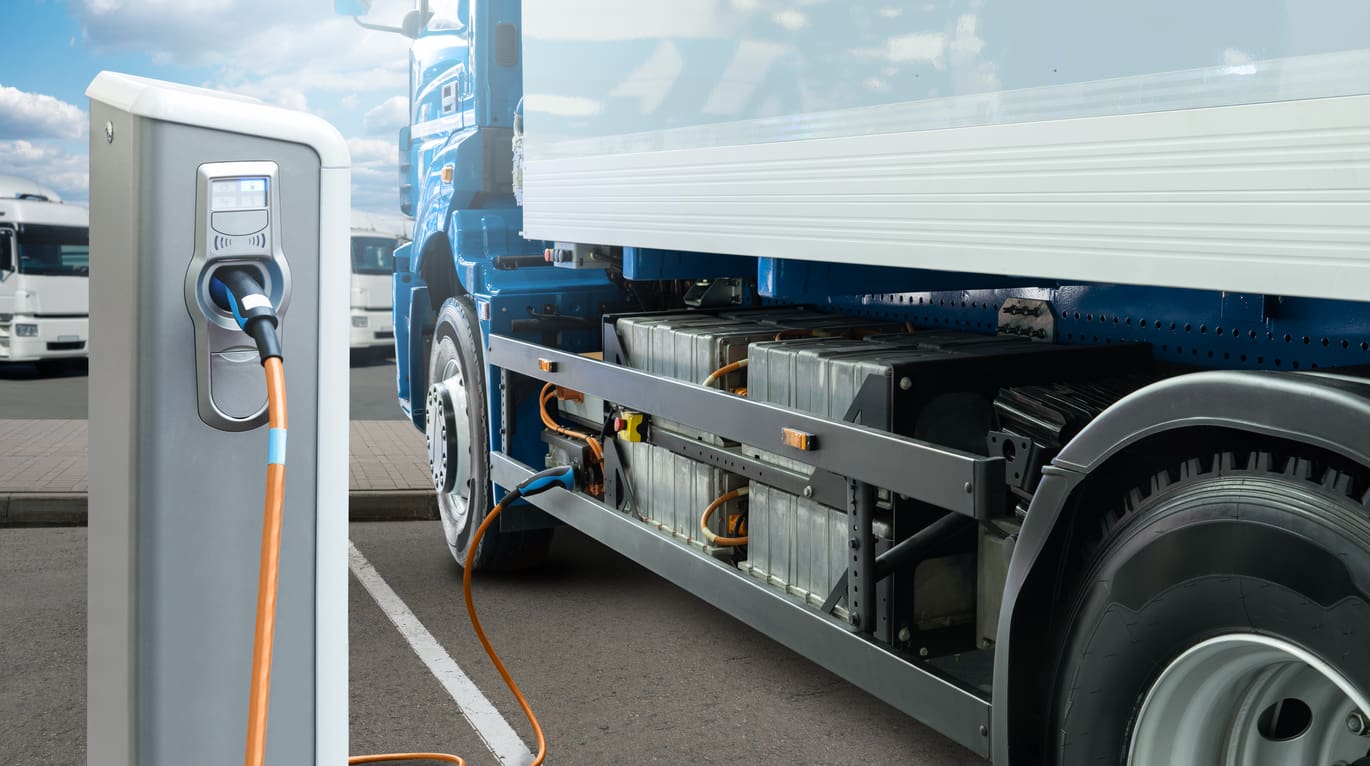What is Fleet Electrification and How Does It Impact the Industry
In recent years, many industries have taken the initiative to become more eco-friendly. From using sustainable materials to switching to solar power, companies have begun realizing the many impacts that becoming more environmentally friendly can have on their business. Not only does using more sustainable business practices benefit a company, but it shows its consumers that they care about the environment and understand their role in protecting it. The trucking industry is no different.
Recently, more companies have been creating electric commercial vehicles. With advances in technology, these trucks not only produce the same results as a regular tractor-trailer but can save the company money and maintenance in the long run. Learn more about fleet electrification and how it is impacting the trucking industry.
What is Fleet Electrification
Fleet electrification refers to vehicles that run partially or fully on electrical power. These can include battery electric vehicles (BEVs), as well as plug-in hybrid electric vehicles (PHEVs). When most people think of electric vehicles, they think of small cars that the average driver may have. However, modern electric vehicles have adapted to be all sizes. In the past few years, fleet electrification has advanced to eliminate some of the issues that often used to come with electrifying vehicles, especially larger ones. Companies like Ford, Bollinger Motors, Lordstown Motors, and Rivian are a few of the automakers who have released electric pickup trucks and commercial vehicles in the past few years. While many individuals may think that choosing fleet electrification is unsustainable, electric commercial vehicles are the future. It is not a matter of if, it is a matter of when carriers choose to make the partial or full switch to electric vehicles.
Many companies have already begun making the switch to fleet electrification. New York City plans to convert its public bus system to entirely electric by the year 2040. Amazon recently committed to purchasing a large number of electric vans in an effort to make their company more environmentally friendly, with plans to make all of their vehicles entirely electric by the year 2030.
Benefits of Fleet Electrification
Fleet electrification has many benefits. When making the switch to electric vehicles, companies can save money on maintenance costs, as well as overall operations.
Fuel Cost Reduction
While it is a commonly known fact that electric vehicles drastically reduce fuel costs, it is one of the largest benefits of an electric vehicle. Fuel is extremely expensive, and with today’s gas prices, it can cost companies thousands of dollars to fuel their vehicles. With fleet electrification, this is nearly eliminated. While charging an electric vehicle may occasionally cost money depending on the location, it is nothing compared to regularly paying for gas.
Maintenance Cost Reduction
Regular vehicles that use gas have a plethora of maintenance costs that can cost a great deal of money to pay. With fleet electrification, these costs can be greatly reduced. With an electric vehicle, the need for oil changes, engine repairs, fuel injector, and filter cleaning, ignition coils and spark plugs, as well as many other typical maintenance tasks are eliminated. Even if a vehicle is a hybrid, meaning it uses gas and electric, these maintenance costs can still be reduced due to gas not being used as frequently in these types of vehicles.
EV Tax Credits
Under EPA rules, a new medium to heavy vehicles must adhere to carbon dioxide emission limits in 2024 and 2027. By selling small volumes of electric trucks, the original equipment manufacturers can lower their carbon emissions while receiving EV tax credits. Carriers who add electric vehicles to their fleets are eligible for rebates, vehicle registration fee reductions, loans, and special low-cost charging rates.
Environmentally Conscious
While changing to electronic vehicles can have many benefits for the costs of a company, showing consumers that a company cares about the environment is extremely important in society today. With many companies making the switch to sustainable practices, consumers are more likely to support companies they feel are taking steps in the right direction to protect the environment. Many individuals are well educated on the effects that gas vehicles can have on the environment, and have opted to use electric vehicles for personal use. Seeing that a company they directly or indirectly buy from is taking the same strides can encourage them to want to support the company even more.
The Disadvantage of Fleet Electrification
While fleet electrification can have many benefits for a trucking carrier, there are a few downsides to note.
Purchasing Expenses
Any new technology is usually on the expensive side. While the price of electric vehicles may be surprising at first, the cost savings they can provide later on can make up for the initial cost to purchase one.
Converting Truck Owners
While electric trucks can make positive changes to the trucking industry, it may be difficult to push truck owners to make the switch. Marketing for electric commercial vehicles has a long way to go in order to persuade all truck owners to buy an electric truck instead. Additionally, electric vehicles are often stereotyped as having a particular type of owner and many truck owners may not want to buy into it.
Recharging Time and Frequency
Depending on the weight of a load, electric commercial vehicles may need to be charged more frequently than a gas vehicle needs to be refilled. Due to there not being as many charging stations as gas stations in the U.S., this poses an issue for drivers making long trips across the country. However, as electric vehicles become more normalized, charging stations are likely to become more frequent in all areas.
Join the Trucking Industry with TDI
Looking to get behind the wheel and learn more about truck driving? The trucking industry is always looking for more drivers, and taking the next step in your career should be with one of the largest CDL schools East of the Rockies. With 11 campuses in seven states, Truck Driver Institute is ready to help you become our next graduate. Get started with TDI today!
Get Started
Get your Class A CDL in our friendly, supportive CDL training program. TRAIN with experienced instructors – multiple good-paying, secure job choices with benefits available for eligible graduates. EARN $700 – $1000+ / week to start as a truck driver. Get started today by filling out the form below. We look forward to hearing from you!




